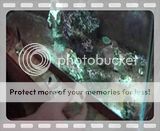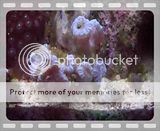Rcpilot
Reef enthusiast
I noticed we have a lot of newer members on the forums and many of you have asked questions about fragging corals. I'll try and put together a few short videos on how I cut and mount my frags.
I'm pretty casual about how I cut and mount corals. I've had very good luck using a simple and common sense approach to fragging many different types of corals. I do take my personal safety seriously and I always wear gloves when handling corals outside the tank. I always wear glasses to protect my eyes. I always wash my hands before I put them in the tank. I always wash my hands after fragging.
I'm pretty casual about how I cut and mount corals. I've had very good luck using a simple and common sense approach to fragging many different types of corals. I do take my personal safety seriously and I always wear gloves when handling corals outside the tank. I always wear glasses to protect my eyes. I always wash my hands before I put them in the tank. I always wash my hands after fragging.
Last edited:


















